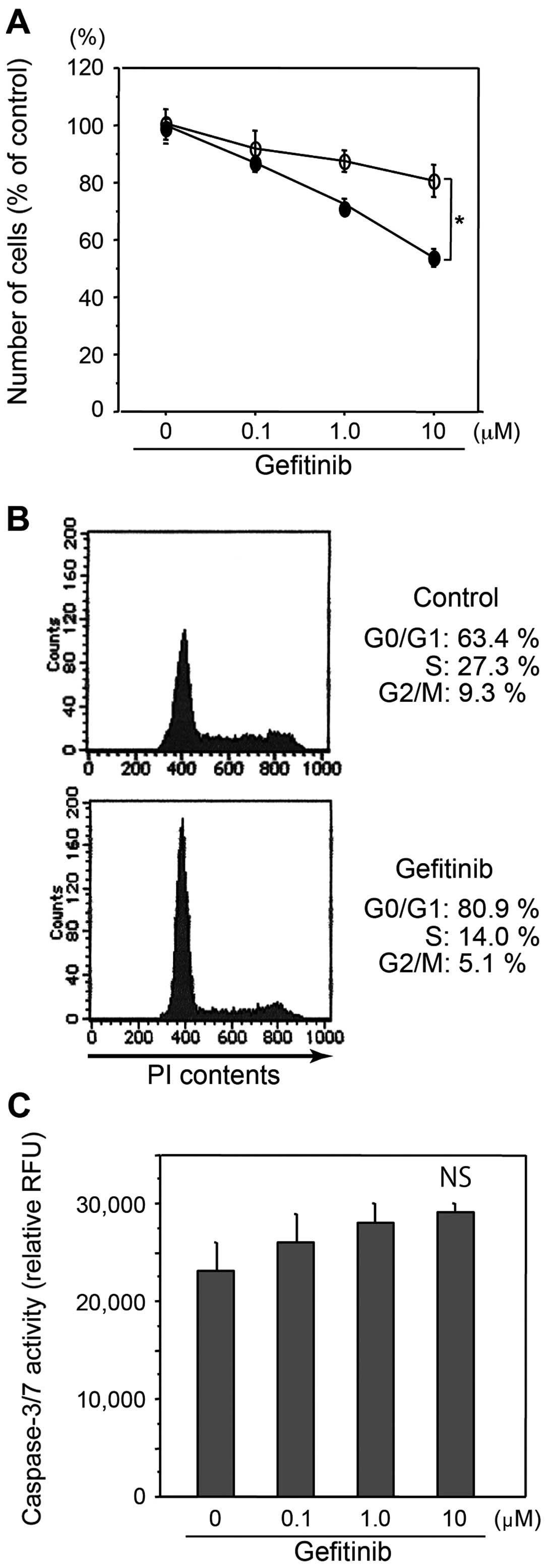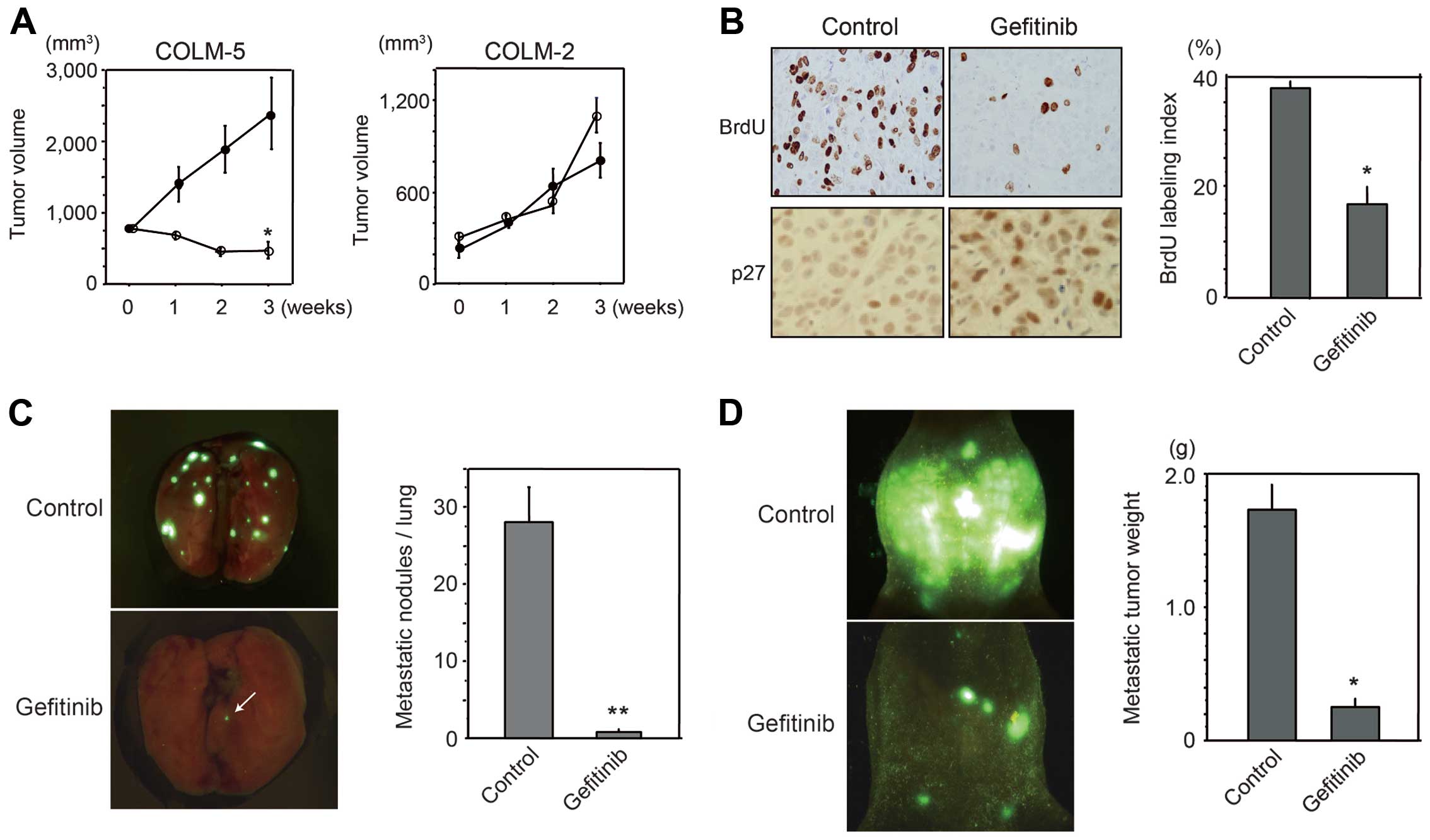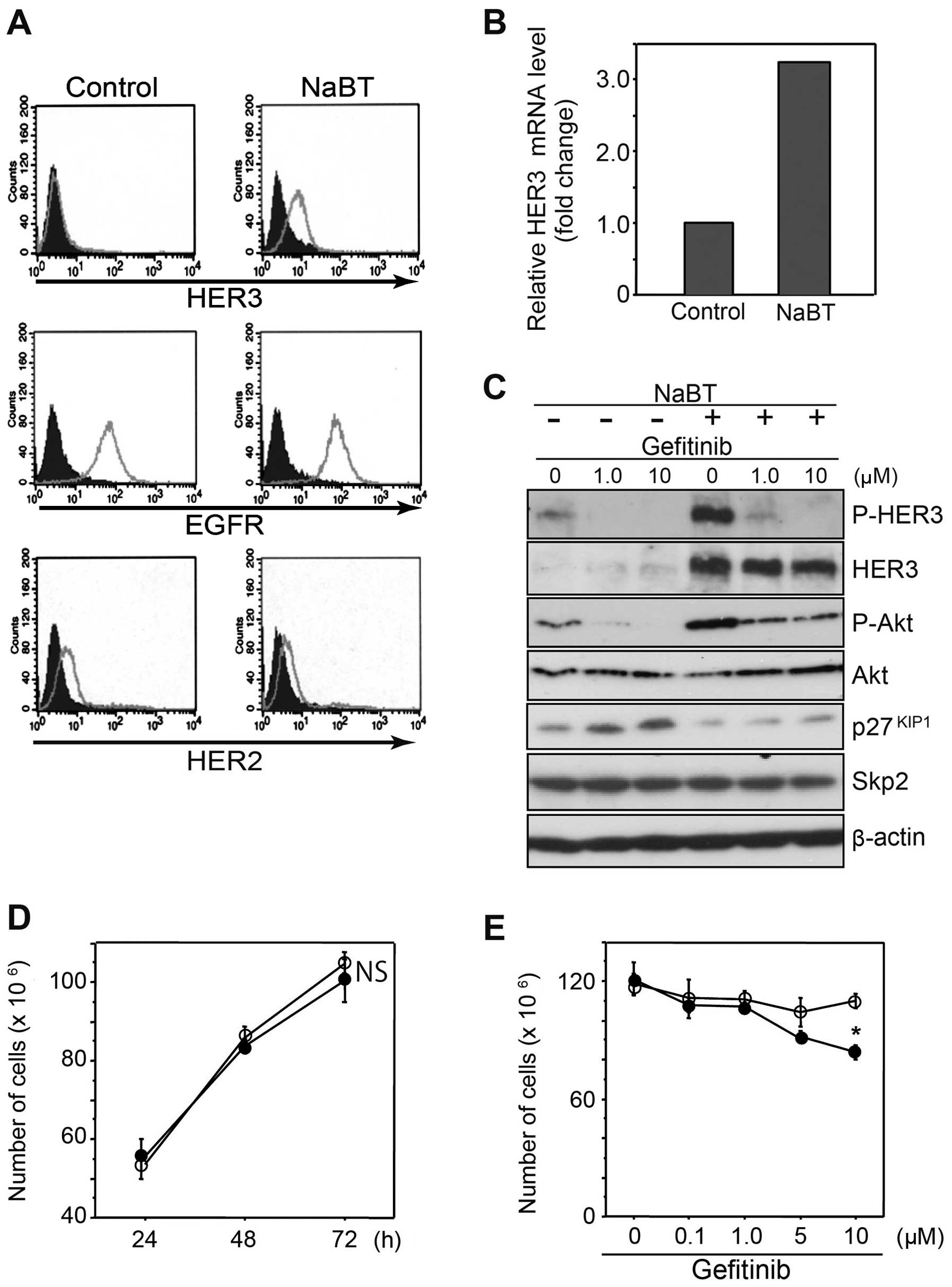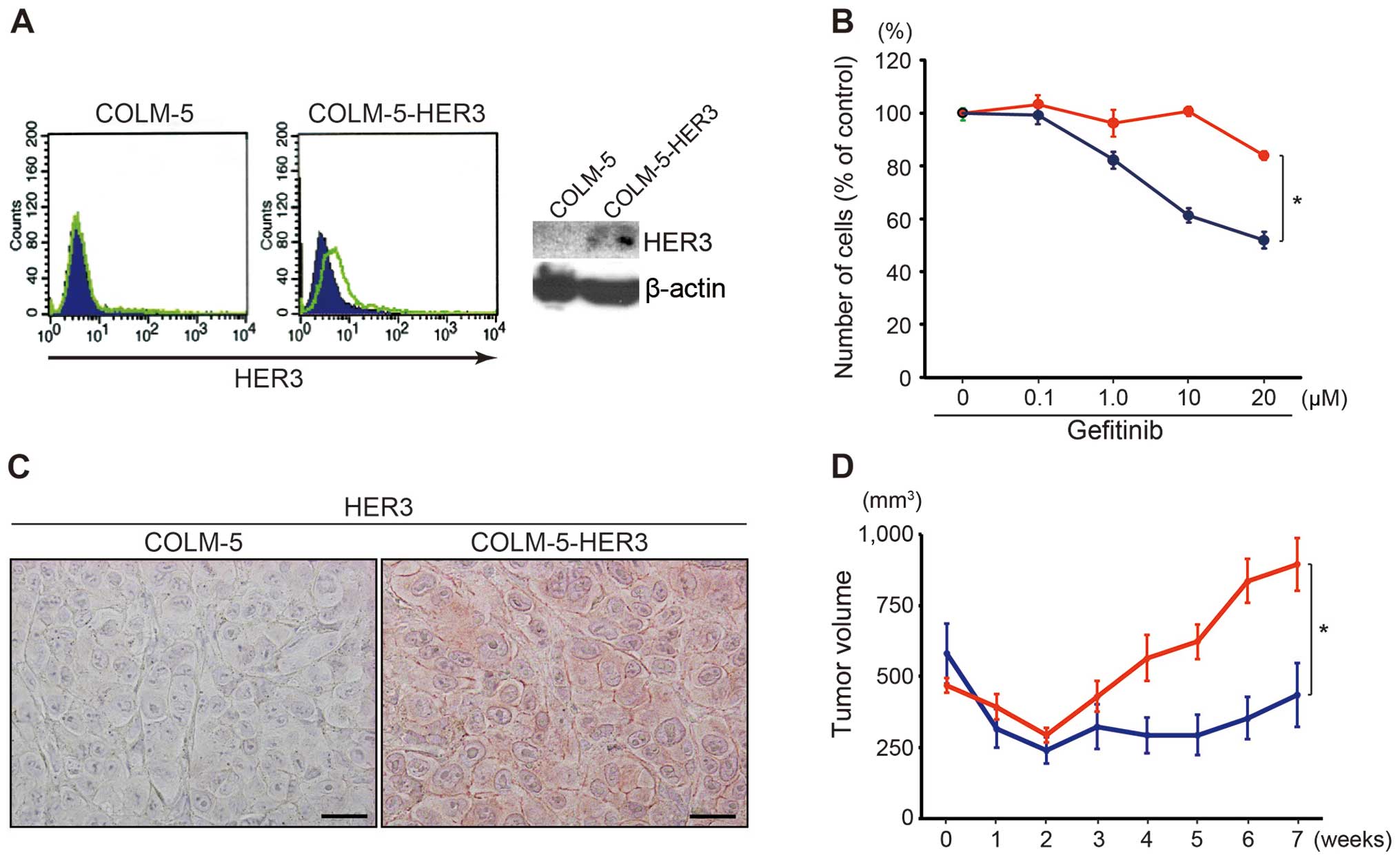|
1
|
Hamilton SR, Rubio CA, Vogelstein B, et
al: Carcinoma of the colon and rectum. World Health Organization
Classification of Tumours. Pathology and Genetics of Tumours of the
Digestive System. Hamilton SR and Aaltonen LA: IARC Press; Lyon:
pp. 105–119. 2000
|
|
2
|
Fearon ER and Vogelstein B: A genetic
model for colorectal tumorigenesis. Cell. 61:759–767. 1990.
View Article : Google Scholar : PubMed/NCBI
|
|
3
|
Fodde R, Smits R and Clevers H: APC,
signal transduction and genetic instability in colorectal cancer.
Nat Rev Cancer. 1:55–67. 2001. View
Article : Google Scholar : PubMed/NCBI
|
|
4
|
Arai T, Takubo K, Sawabe M and Esaki Y:
Pathologic characteristics of colorectal cancer in the elderly: a
retrospective study of 947 surgical cases. J Clin Gastroenterol.
31:67–72. 2000. View Article : Google Scholar : PubMed/NCBI
|
|
5
|
Kazama Y, Watanabe T, Kanazawa T, Tanaka
J, Tanaka T and Nagawa H: Poorly differentiated colorectal
adenocarcinomas show higher rates of microsatellite instability and
promoter methylation of p16 and hMLH1: a study matched for T
classification and tumor location. J Surg Oncol. 97:278–283. 2008.
View Article : Google Scholar
|
|
6
|
Xiao H, Yoon YS, Hong SM, Roh SA, Cho DH,
Yu CS and Kim JC: Poorly differentiated colorectal cancers:
correlation of microsatellite instability with clinicopathologic
features and survival. Am J Clin Pathol. 140:341–347. 2013.
View Article : Google Scholar : PubMed/NCBI
|
|
7
|
Hinoi T, Tani M, Lucas PC, et al: Loss of
CDX2 expression and microsatellite instability are prominent
features of large cell minimally differentiated carcinomas of the
colon. Am J Pathol. 159:2239–2248. 2001. View Article : Google Scholar : PubMed/NCBI
|
|
8
|
Chung CK, Zaino RJ and Stryker JA:
Colorectal carcinoma: evaluation of histologic grade and factors
influencing prognosis. J Surg Oncol. 21:143–148. 1982. View Article : Google Scholar : PubMed/NCBI
|
|
9
|
Kawabata Y, Tomita N, Monden T, et al:
Molecular characteristics of poorly differentiated adenocarcinoma
and signet-ring-cell carcinoma of colorectum. Int J Cancer.
84:33–38. 1999. View Article : Google Scholar : PubMed/NCBI
|
|
10
|
Kim JH, Rhee YY, Bae JM, Cho NY and Kang
GH: Loss of CDX2/CK20 expression is associated with poorly
differentiated carcinoma, the CpG island methylator phenotype, and
adverse prognosis in microsatellite-unstable colorectal cancer. Am
J Surg Pathol. 37:1532–1541. 2013. View Article : Google Scholar
|
|
11
|
Seshimo I, Yamamoto H, Mishima H, et al:
Expression and mutation of SMAD4 in poorly differentiated carcinoma
and signet-ring cell carcinoma of the colorectum. J Exp Clin Cancer
Res. 25:433–442. 2006.PubMed/NCBI
|
|
12
|
Rad R, Cadiñanos J, Rad L, et al: A
genetic progression model of Braf (V600E)-induced intestinal
tumorigenesis reveals targets for therapeutic intervention. Cancer
Cell. 24:15–29. 2013. View Article : Google Scholar : PubMed/NCBI
|
|
13
|
Coffee EM, Faber AC, Roper J, et al:
Concomitant BRAF and PI3K/mTOR blockade is required for effective
treatment of BRAF (V600E) colorectal cancer. Clin Cancer Res.
19:2688–2698. 2013. View Article : Google Scholar : PubMed/NCBI
|
|
14
|
Hynes NE and Lane HA: ERBB receptors and
cancer: the complexity of targeted inhibitors. Nat Rev Cancer.
5:341–354. 2005. View Article : Google Scholar : PubMed/NCBI
|
|
15
|
Oshima Y, Tanaka H, Murakami H, Ito Y,
Furuya T, Kondo E, Kodera Y and Nakanishi H: Lapatinib sensitivity
of two novel trastuzumab-resistant HER2 gene-amplified gastric
cancer cell lines. Gastric Cancer. 17:450–462. 2014. View Article : Google Scholar : PubMed/NCBI
|
|
16
|
Mayer A, Takimoto M, Fritz E, Schellander
G, Kofler K and Ludwig H: The prognostic significance of
proliferating cell nuclear antigen, epidermal growth factor
receptor, and mdr gene expression in colorectal cancer. Cancer.
71:2454–2460. 1993. View Article : Google Scholar : PubMed/NCBI
|
|
17
|
Cunningham D, Humblet Y, Siena S, et al:
Cetuximab monotherapy and cetuximab plus irinotecan in
irinotecan-refractory metastatic colorectal cancer. N Engl J Med.
351:337–345. 2004. View Article : Google Scholar : PubMed/NCBI
|
|
18
|
Chung KY, Shia J, Kemeny NE, et al:
Cetuximab shows activity in colorectal cancer patients with tumors
that do not express the epidermal growth factor receptor by
immunohistochemistry. J Clin Oncol. 23:1803–1810. 2005. View Article : Google Scholar : PubMed/NCBI
|
|
19
|
Moroni M and Veronese S: Gene copy number
for epidermal growth factor receptor (EGFR) and clinical response
to anti-EGFR treatment in colorectal cancer. A cohort study. Lancet
Oncol. 6:279–286. 2005. View Article : Google Scholar : PubMed/NCBI
|
|
20
|
Lievre A, Bachet JB, Le Corre D, et al:
KRAS mutation is predictive of response to cetuximab therapy in
colorectal cancer. Cancer Res. 66:3992–3995. 2006. View Article : Google Scholar : PubMed/NCBI
|
|
21
|
Yokota T, Ura T, Shibata N, et al: BRAF
mutation is a powerful prognostic factor in advanced and recurrent
colorectal cancer. Br J Cancer. 104:856–862. 2011. View Article : Google Scholar : PubMed/NCBI
|
|
22
|
Menendez JA and Lupu R:
Transphosphorylation of kinase-dead HER3 and breast cancer
progression: a new standpoint or an old concept revisited? Breast
Cancer Res. 9:1112007. View Article : Google Scholar : PubMed/NCBI
|
|
23
|
Sergina NV, Rausch M, Wang D, Blair J,
Hann B, Shokat KM and Moasser MM: Escape from HER family tyrosine
kinase inhibitor therapy by the kinase inactive HER3. Nature.
445:437–441. 2007. View Article : Google Scholar : PubMed/NCBI
|
|
24
|
Yakes FM, Chinratanalab W, Ritter CA, King
W, Seelig S and Arteaga CL: Herceptin-induced inhibition of
phosphatidylinositol- 3 kinase and Akt is required for
antibody-mediated effects on p27, cyclin D1, and antitumor action.
Cancer Res. 62:4132–4141. 2002.PubMed/NCBI
|
|
25
|
Maurer CA, Friess H, Kretschmann B, et al:
Increased expression of erbB3 in colorectal cancer is associated
with concomitant increase in the level of erbB2. Hum Pathol.
29:771–777. 1998. View Article : Google Scholar : PubMed/NCBI
|
|
26
|
Ito Y, Nakanishi H, Kodera Y, Hirai T,
Nakao A and Kato T: Characterization of a novel lymph node
metastasis model from human colonic cancer and its preclinical use
for comparison of anti-metastatic efficacy between oral S-1 and
UFT/LV. Cancer Sci. 101:1853–1860. 2010. View Article : Google Scholar : PubMed/NCBI
|
|
27
|
Yokoyama H, Nakanishi H, Kodera Y, et al:
Biological significance of isolated tumor cells and micrometastasis
in lymph nodes evaluated using a green fluorescent protein
(GFP)-tagged human gastric cancer cell line. Clin Cancer Res.
12:361–368. 2006. View Article : Google Scholar
|
|
28
|
Carrano AC, Eytan E, Hershko A and Pagano
M: Skp2 is required for ubiquitin-mediated degradation of the CDK
inhibitor P27. Nat Cell Biol. 3:193–199. 1999. View Article : Google Scholar : PubMed/NCBI
|
|
29
|
Pagano M: Control of DNA synthesis and
mitosis by the Skp2-p27-Cdk1/2 axis. Mol Cell. 14:414–416. 2004.
View Article : Google Scholar : PubMed/NCBI
|
|
30
|
Kountourakis P, Pavlakis K, Psyrri A, et
al: Prognostic significance of HER3 and HER4 protein expression in
colorectal adenocarcinomas. BMC Cancer. 6:462006. View Article : Google Scholar : PubMed/NCBI
|
|
31
|
Beji A, Horst D, Engel J, et al: Toward
the prognostic significance and therapeutic potential of HER3
receptor tyrosine kinase in human colon cancer. Clin Cancer Res.
18:956–968. 2012. View Article : Google Scholar : PubMed/NCBI
|
|
32
|
Ocana A, Vera-Badillo F, Seruga B,
Templeton A, Pandiella A and Amir E: HER3 overexpression and
survival in solid tumors: A meta-analysis. J Natl Cancer Inst.
105:266–273. 2013. View Article : Google Scholar : PubMed/NCBI
|
|
33
|
Baiocchi G, Lopes A, Coudry RA, et al:
ErbB family immunohistochemical expression in colorectal cancer
patients with higher risk of recurrence after radical surgery. Int
J Colorectal Dis. 24:1059–1068. 2009. View Article : Google Scholar : PubMed/NCBI
|
|
34
|
Coqueret O: New roles for p21 and p27
cell-cycle inhibitors: a function for each cell compartment? Trends
Cell Biol. 13:65–70. 2003. View Article : Google Scholar : PubMed/NCBI
|
|
35
|
Di Gennaro E, Barbarino M, Bruzzese F, et
al: Critical role of both p27KIP1 and
p21CIP1/WAF1 in the antiproliferative effect of ZD1839
(‘Iressa’), an epidermal growth factor receptor tyrosine kinase
inhibitor, in head and neck squamous carcinoma cells. J Cell
Physiol. 195:139–150. 2003.
|
|
36
|
Varna M, Lehmann-Che J, Turpin E, et al:
p53 dependent cell-cycle arrest triggered by chemotherapy in
xenografted breast tumors. Int J Cancer. 124:991–997. 2009.
View Article : Google Scholar : PubMed/NCBI
|





















